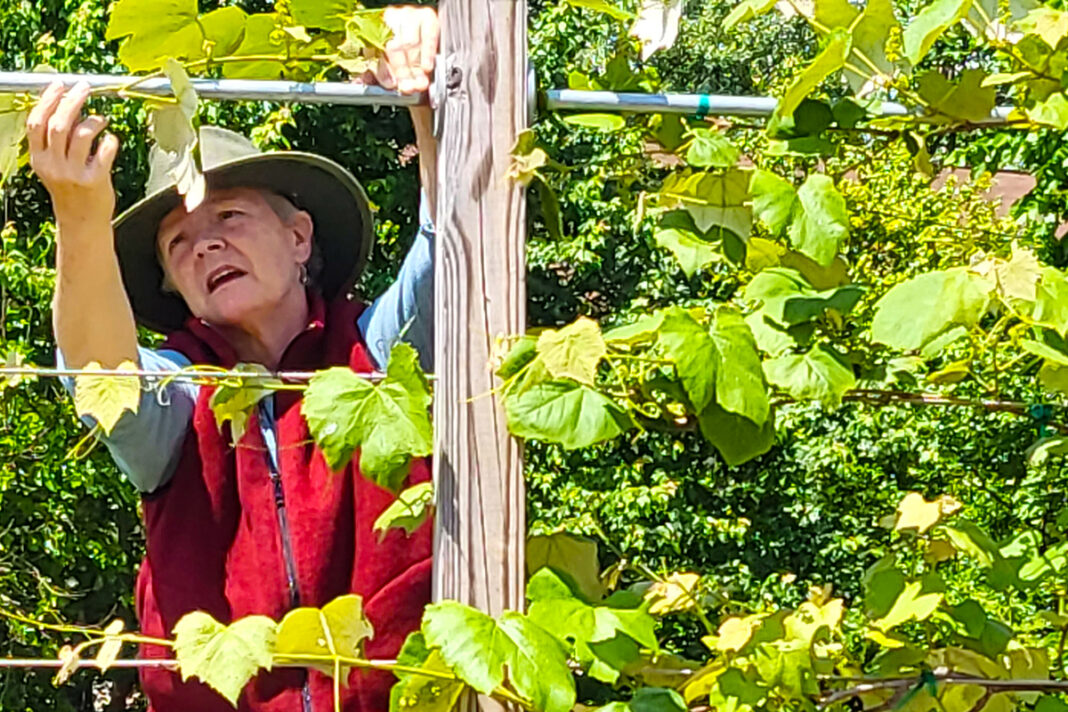COLUMBUS — Tisa Watts calls herself a gardening coach. If someone wants to learn how to start a “pizza” garden full of peppers and tomatoes, no problem. She is happy to walk you through it and check in when needed.
Watts is the founder and owner of the Columbus Garden School. She is also an educator and an expert on backyard biodiversity, as a horticulturist with 20 years of experience.
Returning home
Originally from Cleveland, she has spent time on the West Coast as a landscape contractor, as well as an illustrator and technical writer in Silicon Valley. She returned to Ohio, knowing she wanted to start a school.
“It took two years of searching in and around Columbus to find the right place,” Watts said, “and I found it.”
The school is located on 2 acres in the middle of the city. It was once a small worship center that was transitioned to a home with a big classroom and plenty of room for a large demonstration garden, colorful beehives, many fruit vines and a prairie restoration area.
Watts has offered virtual and hands-on classes in gardening, pruning, seeds, composting, permaculture, raising chickens, beekeeping, herbalism and native plant propagation. Once the school was established, however, Watts became aware of the need for homesteading training for food preservation and basic construction workshops for women.
“They are hugely popular,” she said.


Finding her place
Getting to this point in her life was hardly easy. She spent years in a cubicle illustrating technical designs for tech startups in San Francisco but then would go home and spend all her free time in her garden.
“We’re not meant to feel like caged animals,” she said, referring to her life in the cubicle.
Once she realized where she needed to be, she went back to school and got a degree in landscape design and horticulture.
“It has rocked my world for the last 25 years,” she said.

Establishing the school has taken time.
“My wife has supported me through this and has paid the bills while I have established the school,” she said.
Watts has a holistic approach to growing.
“It’s not just gardening,” she said. “I see people change as they learn. I see a certain confidence emerge. It may look like I’m focusing on growing plants, but I like to see people grow, too.”
Just as Watts likes to nurture plants and people, she is also an advocate for native plants and reverting chemically created lawns back to prairie and flowers, which are attractive to native bees and birds.
“I see such a desire to make things better in our natural world, and it is a big trend in gardening,” Watts said. “It is absolutely better gardening.”

Gardening tips
Watts said it’s easy to add shrubs like chokeberry. It is a native of the area, and the berries are edible. She also suggests ninebark, which is a hardy bush that offers foliage in a variety of colors as well as flowers that attract pollinators.
Dogwood is another shrub she suggests, but she advises that although there are a multitude of varieties, they can get fairly big. Also, the dogwood tree is an Asian species and not native to the area.
As she invests in her business and the concept of a gardening school, her workday never ends. People stop by and ask questions, and Watts is only too happy to showcase her garden and talk about options and ideas. This success has developed over time, but it was during the pandemic when everything went virtual and Watts cashed in on the opportunities.
Watts has some advice as most gardens enter the summer season. First and foremost, water the plants every day. Everything may appear green and healthy, but it’s easier to keep plants healthy than try to resurrect them later in the season.
Second, take inventory of your resources. This includes plants, tools, and spaces. Fix what’s broken and throw away what does not work.
And finally, find a place to sit and admire your garden and your work. Get a comfortable chair, a cool drink, a book and a place in the shade.
Gardening is therapeutic, Watts said, but it’s hard work. You need to give yourself credit and enjoy the fruits of your labor.











